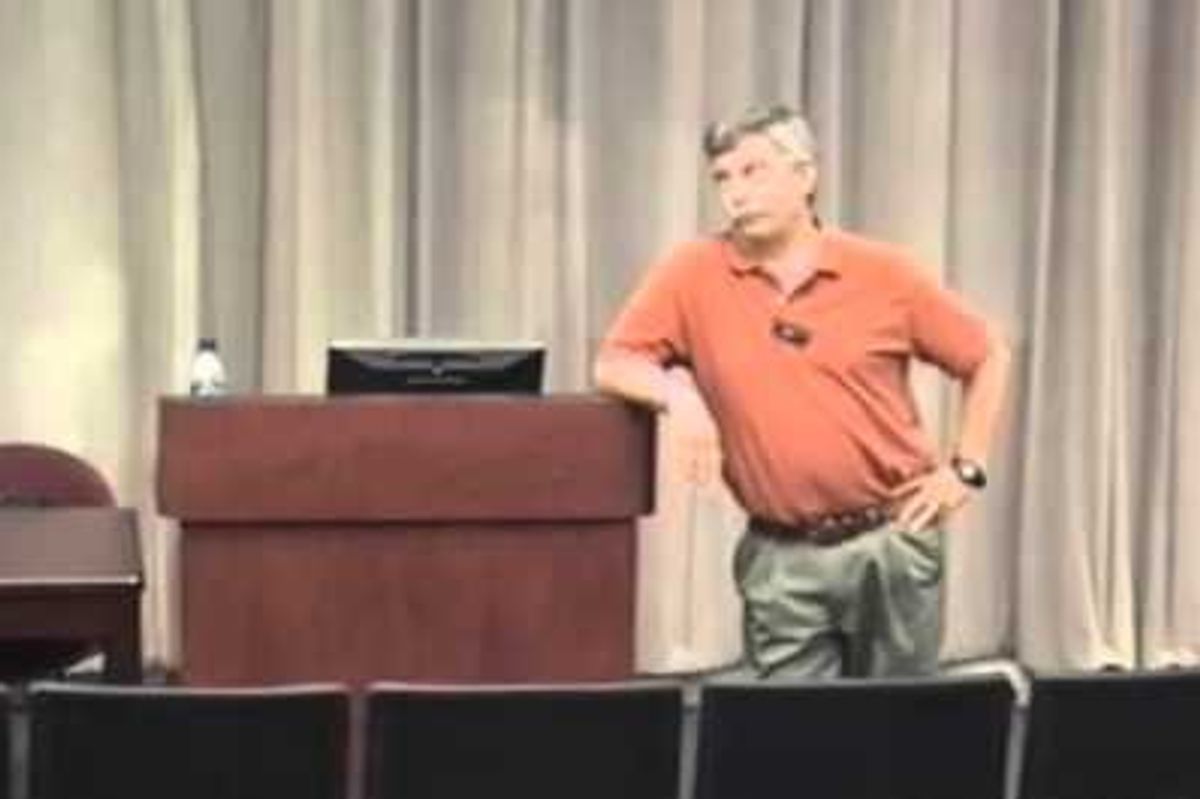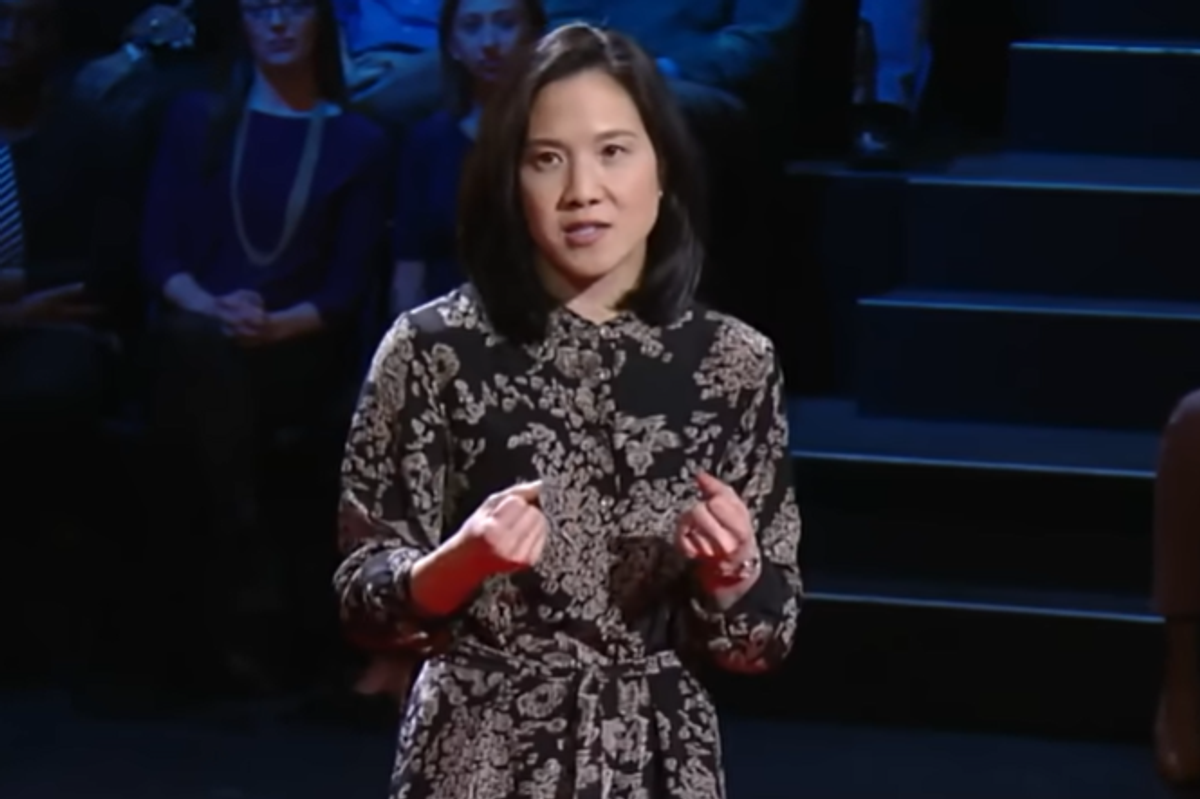Historic video shows betrayed professor turning classroom into the ultimate ethics experiment
The students must have been stunned.

Professor Richard Quinn catches his students cheating.
A 2010 video of a business professor at the University of Central Florida standing up against cheating in his classroom has resurfaced on Instagram, and it’s worth sharing for those who’ve never heard the story. The professor’s stern warning to students about the dangers of cheating is so memorable that it’s been highlighted on the American Rhetoric historic speech database. It’s also notable for the unique approach he took to outing the cheaters: come forward and admit you cheated, or face dire consequences if we find out you did.
In November of 2010, Professor Richard Quinn addressed his students in a videotaped lecture, where he noted that the test scores "were a grade and a half higher than [they had] ever had run before,” he said. This led him to believe that someone had circulated the test among his 600 students. “This is, as some of you out there know, because some of you out there are also in possession of this, is the complete test bank for the midterm exam," Quinn said.
A test bank is a set of questions created by a textbook publisher for professors to use in creating quizzes, exams, and assessments.
What is the University of Central Florida cheating scandal?
(The entire speech is available at the end of the story.)
In his speech to his class Quinn lays it out simply: “During the course of Monday, the lab instructors basically took a look at the data, started receiving emails from students who were concerned and upset that classmates had been bragging to them, that they had advanced copies of the exam, and that they aced the exam because they had all the answers ahead of time."
Quinn then told the students that he knew about a third, or 200, of them had cheated, and gave a list to the dean’s office, claiming to be 95% certain. He also threw out all the scores, and a retest would be administered. "To say I'm disappointed is beyond comprehension," he said. "Physically ill, absolutely disgusted, disillusioned, trying to figure out what the last 20 years were all about."
Quinn gave the cheaters two options
“So, here's the deal. If you participated in this, you have a choice. You can sit back in silence and hope your name doesn't get caught in the net, which is very quickly closing around the participants; or you can, individually, quietly, one-by-one, anonymously if you wish, to the rest of your classmates, identify yourself to your lab instructor,” Quinn said." And, providing you complete a four-hour ethics course being offered by the folks over in Academic Affairs, any permanent record of this will be wiped from your transcripts. There'll be no further action taken.” But those who don’t turn themselves in and get caught face punishment, including expulsion, from Academic Affairs.

Some students complained that they didn’t know they were cheating when fellow students provided them with the information. “If the professor neither sent nor mentioned it, and it went to only some of the students—not to the whole class list (and not from the professor or a teaching assistant)—I would think they should have questioned its legitimacy,” Teddi Fishman, director of the International Center for Academic Integrity at Clemson University, told UCF.
How did students react to Quinn's ultimatum?
After Quinn’s ultimatum, what did the students do? According to the University of Central Florida, around 200 students from Quinn’s class turned themselves in, admitting to cheating on the test—the same number that he predicted. Fifteen students, believed to have cheated, did not turn themselves in and faced disciplinary action from the Academic Affairs office.
The video is making its rounds again because of the great way that Quinn makes his case in front of his students. It’s like a procedural crime show you’d see on TV where a detective methodically figures out who the killer is, while staring them in the face. But on a deeper level, you can see the pain in his heart, the betrayal he felt from the people he was trying to help: his students. The video shows that he is an educator who cares deeply not only about how his students perform academically but also about who they grow to be as individuals.
- YouTube www.youtube.com






 Dirty dishes left on a tableCanva
Dirty dishes left on a tableCanva Gif of overwhelmed waitress via
Gif of overwhelmed waitress via 